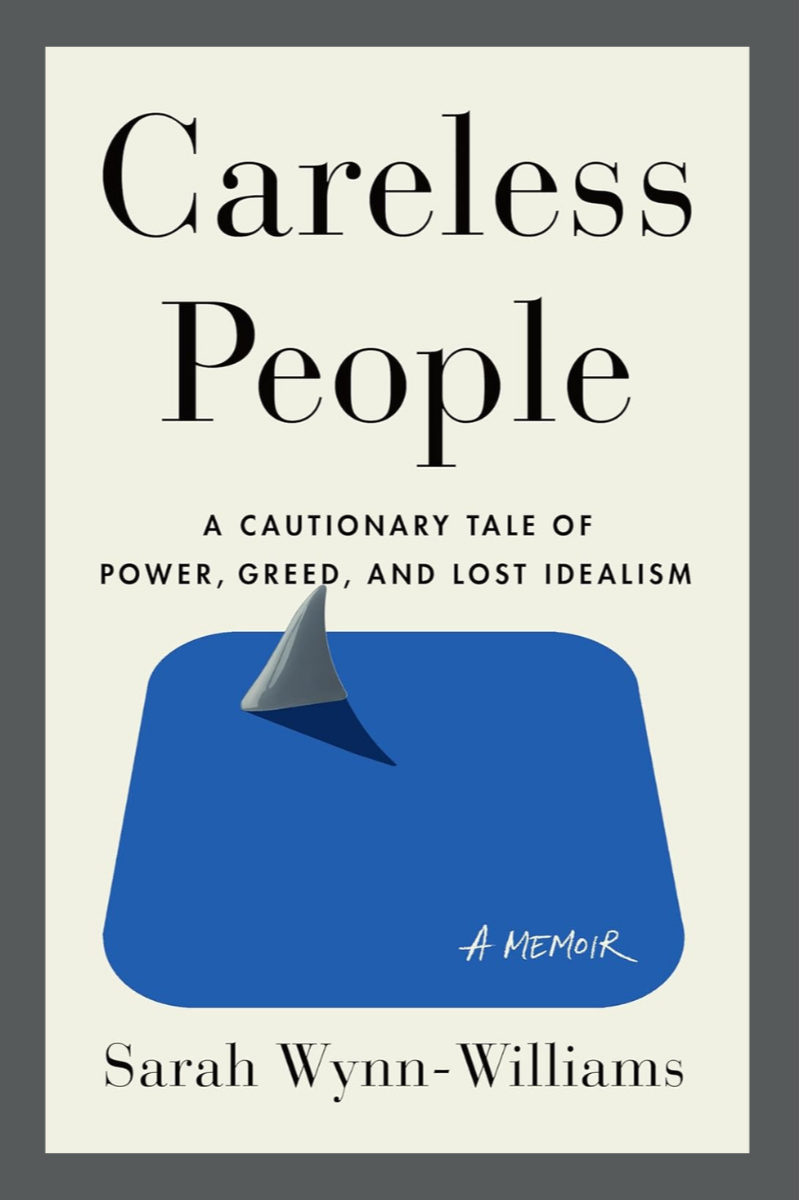Careless People: A Cautionary Tale of Power, Greed and Lost Idealism – Sarah Wynn-Williams
If you’ve ever worked at a tech company and thought, “Surely leadership knows what it’s doing,” this book will disabuse you of that notion in about five pages.
“Careless People” is part memoir and part WTF exposé from Sarah Wynn-Williams, a former Facebook (Meta) policy executive who joined the company with real hope that it could do good in the world and left with her health, ideals and sanity in tatters.
The setup is classic David vs. Goliath: an earnest woman from New Zealand goes from the United Nations to Silicon Valley and ends up on private jets with world leaders while her bosses play board games they expect to win and ignore all warnings from her — and others — about, you know, democracy collapsing thanks to the tool they created.
Let’s be honest, I showed up for the gossip — and it delivers.
Cringe-inducing delegation visits, behind-the-scenes drama with world leaders, a bar in Spain with Hillary Clinton while our author is hit on by a porn star/bullfighter and Mark Zuckerberg’s reaction to learning how Trump’s campaign hijacked his platform to spread misinformation. Spoiler: he’s impressed. Sheryl Sandberg suggests hiring the Trump staffers.
The leaders of Facebook — especially Mark Zuckerberg and Sheryl Sandberg — come off as deeply out of touch at best, and dangerously self-interested at worst. Wynn-Williams doesn’t hold back: Zuckerberg is portrayed as a man obsessed with control but allergic to accountability, impressed by manipulation rather than alarmed by it and surrounded by enablers that insulate him from reality.
Sandberg, meanwhile, is the real villain of the story. A master of PR spin who publicly champions “leaning in” while privately punishing women who dare to prioritize their families or question her authority. Whether the scorn directed at Sandberg is a product of proximity or personality is up for debate, but the portrait Wynn-Williams paints is one of a performative leader whose image far outpaces her integrity.
Wynn-Williams is a compelling storyteller. She’s smart, self-aware and genuinely likable. She blends policy, personal anecdotes and global politics in a way that somehow makes it all feel cohesive, even when she opens with a totally off-the-wall story about surviving a shark attack (which turns out to be weirdly relevant). Her voice, literal and metaphorical, is strong.
That said, this isn’t a redemption arc. The author stuck around a long time — longer than I think most readers would’ve — and while she tries to explain why (money, family, idealism), it’s hard not to roll your eyes a bit when she keeps acting shocked that Facebook leadership acts like... Facebook leadership. It’s not like “The Social Network” and “The Accidental Billionaires” didn’t exist when she joined the company.
Still, there’s a value in hearing this story from someone who tried to change things from the inside and got steamrolled by a culture of willful ignorance, retaliation and performance reviews that docked her for talking about her sick kid. I mean, Sheryl Sandberg literally asked her to nap with her.
The first half is juicy, the second half leans heavier into policy and international diplomacy (especially around China), and Chapter 35 is the reason I picked this up as it covers the full scope of Facebook’s role in the 2016 election, algorithmic exploitation and the absolute failure of leadership accountability that followed. It’s maddening and more than a little terrifying.
Wynn-Williams says the company operates with “lethal carelessness.” She’s not wrong, and while Facebook is the focus, it raises much bigger questions about every company that holds our data.
This should be required reading for anyone still on social media or wondering if they should let their kid get an account. If I hadn’t already left Meta platforms, this certainly would’ve pushed me over the edge.
Rating (story): 4/5 stars
Rating (narration): 3/5 stars
Format: Audiobook (library loan)
Dates read: July 30 – August 3, 2025
Multi-tasking: Good to go. Since most of the players are well known, it’s easy to follow along with the story from the start, but unless you’re really into policy, the audio format is a good way to work through some dense socio-political details.





